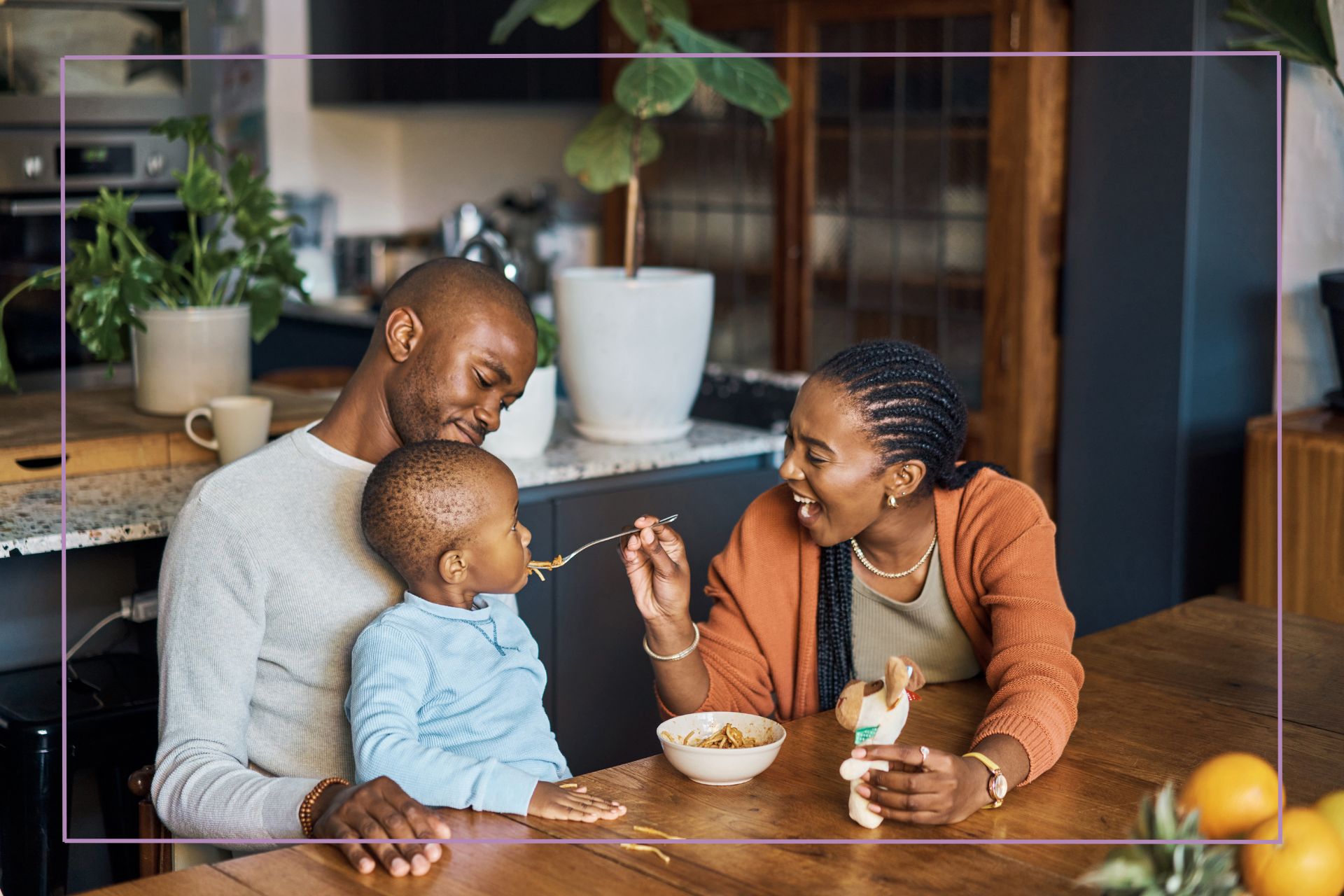Permissive parenting: what is it, what are the effects of it, and how do I know if I am one?
Find out if you are a permissive parent and just how this style of parenting may affect your relationship with your child in the future

Permissive parenting is a style that holds few or no rules and inconsistent boundaries and usually follows a 'child knows best' strategy, with parents choosing to put themselves and their needs as a parent last.
Permissive parenting is a style of parenting where parents typically want to be viewed by their kids as a 'buddy' rather than a parent, it's very different from tiger parenting while overlapping with some of the qualities of the gentle parenting style. While permissive parents are often described as being very nurturing and loving, this controversial style of parenting is defined as having no rules.
Editor's note
While we look into the label 'permissive parent' we do so to share knowledge, not because we subscribe to labelling parents. We are all trying our best with what we know.
Permissive parenting has come under fire in recent years for being 'too lenient.' It's not unlike gentle parenting, and some parents have come out to say why they regret gentle parenting.
Here we discuss the pros and cons of this parenting style, and how it might affect your relationship, including examples of it in action, to learn more about the effect this style of parenting can have on children.
What is permissive parenting?
Permissive parenting, otherwise known as ‘indulgent’ or ‘lenient parenting’, is a style of parenting known for its extremely relaxed nature. Parenting expert and director of Parent 4 Success, Elizabeth O’Shea tells us that permissive parenting is typically: "A parenting style that involves allowing children to do things without having very many rules and regulations put in place."
She added: "Permissive parents tend to be lovely, thoughtful, kind parents but they haven’t learned to set boundaries that enable them to effectively discipline their child."
This parenting style tends to be the total opposite of ‘helicopter parenting.’ Instead of hovering over their children’s every move, permissive parents are contrastingly very lax and rarely enforce any type of rules or structure.
Parenting advice, hot topics, best buys and family finance tips delivered straight to your inbox.
Childcare author Sarah Ockwell-Smith is a very vocal advocate of gentle parenting and is very aware that many people view it as permissive parenting, which it is not. In one of her very helpful posts she shares; "A quick reminder; being gentle as a parent, doesn’t mean being a permissive pushover. Nor does it mean you (think you) are perfect."
A post shared by Sarah Ockwell-Smith (@sarahockwellsmith)
A photo posted by on
Characteristics of permissive parenting:
- Having little to no rules or standards of behaviour
- When there are rules, applying them very inconsistently
- Being heavily nurturing and loving towards their children
- Often seeming more like a friend than a parent
- Potentially using bribery by way of toys, gifts, and goods as a means to get their child to behave well
- Putting more weight on their child’s freedom rather than responsibility
- Giving their child the ability to influence major decisions
- Neglecting to enforce any type of consequences for wrong-doing
Examples of permissive parenting
- Not being able to say no because they don’t want to upset their child. For example, they might be doing a food shop when their child asks for a chocolate bar, despite already having two during the day. Not wanting to upset them, a permissive parent may say something like, ‘Okay, you’ve been good today, so I’ll buy you one.’
- Always putting the wants of their child before their own. For example, permissive parents may never allow themselves to watch their TV programmes because they’ve let their children have a monopoly over the television.
- Not setting specific timings for play, study, and sleep. For example, a permissive parent may let their child stay up late even though they need to get up early the next day for school.
- Asking their child to do tasks but at their convenience. For example, regularly ask their child to put away his or her toys after playing but only if they're not feeling too tired.
Effects of permissive parenting on children:
Researchers have found that permissive parenting can harm children’s development because when parents don’t learn to set limits, their children don’t develop the ability to tolerate frustration or manage themselves.
Typical effects of this style of parenting can result in kids lacking self-discipline, possessing poor social skills, being overly self-involved and demanding, as well as feeling insecure due to lack of guidance.
Other effects of permissive parenting can result in children developing the following traits:
- Having no self-control or self-regulation
- Having difficulty following rules
- Exhibiting antisocial behaviour
- Being rebellious when their demands or challenge
- Lacking discipline and opposing authority
- Being irresponsible and unable to take responsibility for their behaviour
- Becoming selfish and don’t like sharing
- Lack of boundaries resulting in insecurity
Pros of permissive parenting:
The main pros are that your child will feel loved unconditionally, because no matter what they do they know they’ll be loved - even if they behave badly. Children with permissive parents also tend to be more creative, as they have more freedom to explore everything and unleash their imaginative side. And, as there is very little conflict within the home as the child tends to call the shots and the parent gives into their demands. Typically the parent and child will have a very close relationship.
Cons of permissive parenting:
According to Elizabeth: 'A negative result of permissive parenting can be that the child is prevented from learning normal social norms. Because they have no concept of boundaries, children of permissive parents may struggle at school when asked to meet teachers' demands, such as staying still when required or completing homework.'
Leaving a child in charge of major decisions, such as what they eat, causes issues for permissive parents as the child lacks the insight to know what foods will and will not be beneficial for their mental and physical development. Also, there’s a risk that children may grow up to be entitled, as they feel that they don’t have to work for anything to achieve praise and success. Children of permissive parents may develop an issue with discipline, which will cause problems later on in life when it comes to education and employment. Its also worth noting that your child may be at risk of never learning to impose limits on himself or herself. This could result in an excessive amount of screen time or unhealthy dietary habits that carry on into adulthood.
What can you do about permissive parenting?
Elizabeth believes that when it comes to parenting, the bottom line is that 'parents need to be parents'.
Permissive parents feel pressure to be their child’s buddy, but without limits and standards of behaviour being set, their child is at risk of being unable to grow into a selfless, tolerant and driven adult.
Elizabeth suggests that permissive parents take two steps to adopt a more successful parenting approach: 'Firstly, they must look at what limits need to be set. This step involves negotiating rules with your child, and enforcing those rules consistently.' These rules should be centred things such as bedtime, homework, and what they eat.
Secondly, Elizabeth recommends setting boundaries and making sure you follow up on rules. If a child breaks a rule that has been agreed between the both of you, resist the temptation to ignore it and ensure that you adopt a suitable disciplinary action so your child understands that rule-breaking will not be tolerated.

Elizabeth O’Shea is a parenting specialist, child behaviour expert and mother of four. Discover why she’s the go-to expert for advice on how to tackle children’s challenging behaviour. One of the leading parenting specialists in the UK Elizabeth appears regularly on BBC TV and Radio and has been interviewed on Radio 4 Woman’s Hour, The BBC World Service, and appear regularly on Sky News. Qualified in Approach Parenting Programme Trainer, Approved Educator for The Parent Practice, Distinction in Parent Gym Academy, Webster Stratton ‘Incredible years’ Parenting Trainer, and has a Certificate to Teach in the Lifelong Learning Sector (CTLLS) as well as BSc (hons) Nursing Studies
Parenting is the hardest job in the world, it kicks off with Matrescence and then once you've made it through maternity leave and stared down the barrel of post-natal depression you then have explaining the mental load to contend with.
Stephanie has been a journalist since 2008, she is a true dynamo in the world of women's lifestyle and family content. From child development and psychology to delicious recipes, interior inspiration, and fun-packed kids' activities, she covers it all with flair. Whether it's the emotional journey of matrescence, the mental juggling act of being the default parent, or breaking the cycle of parenting patterns, Stephanie knows it inside out backed by her studies in child psychology. Stephanie lives in Kent with her husband and son, Ted. Just keeping on top of school emails/fundraisers/non-uniform days/packed lunches is her second full-time job.